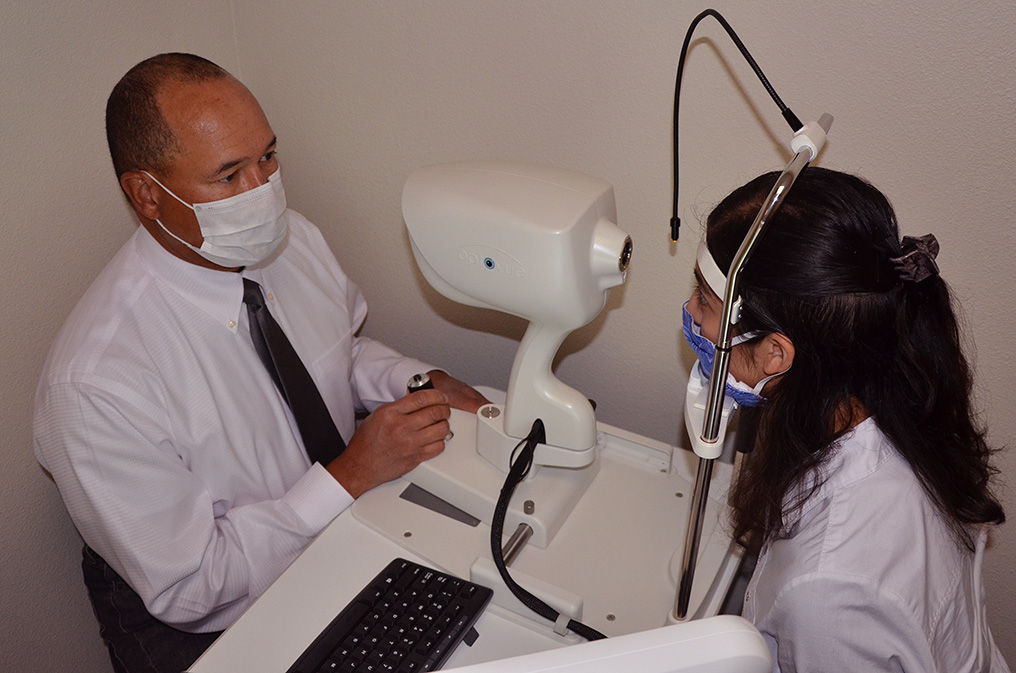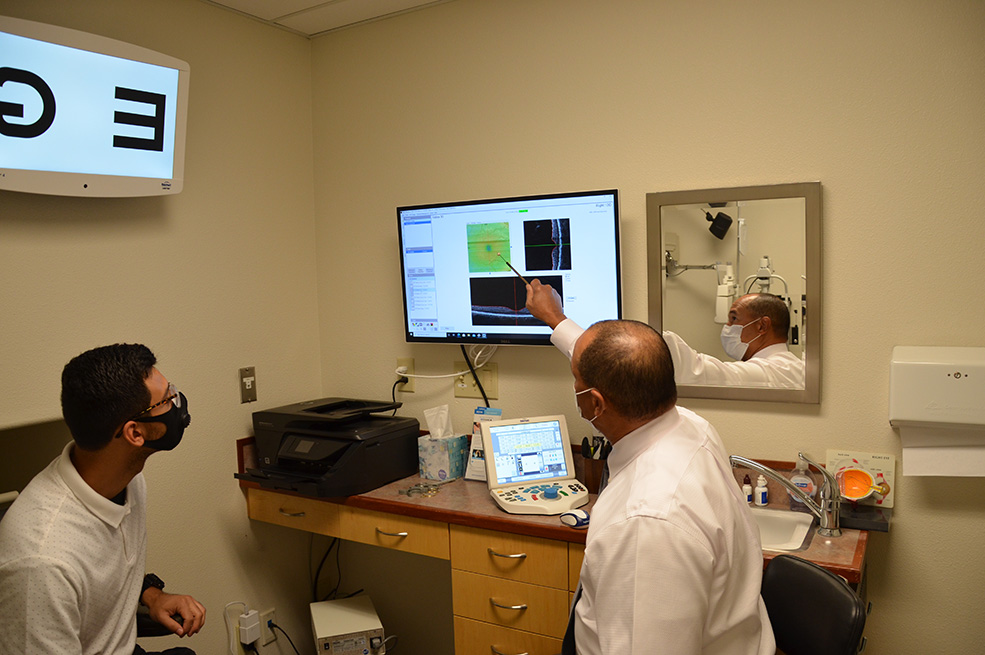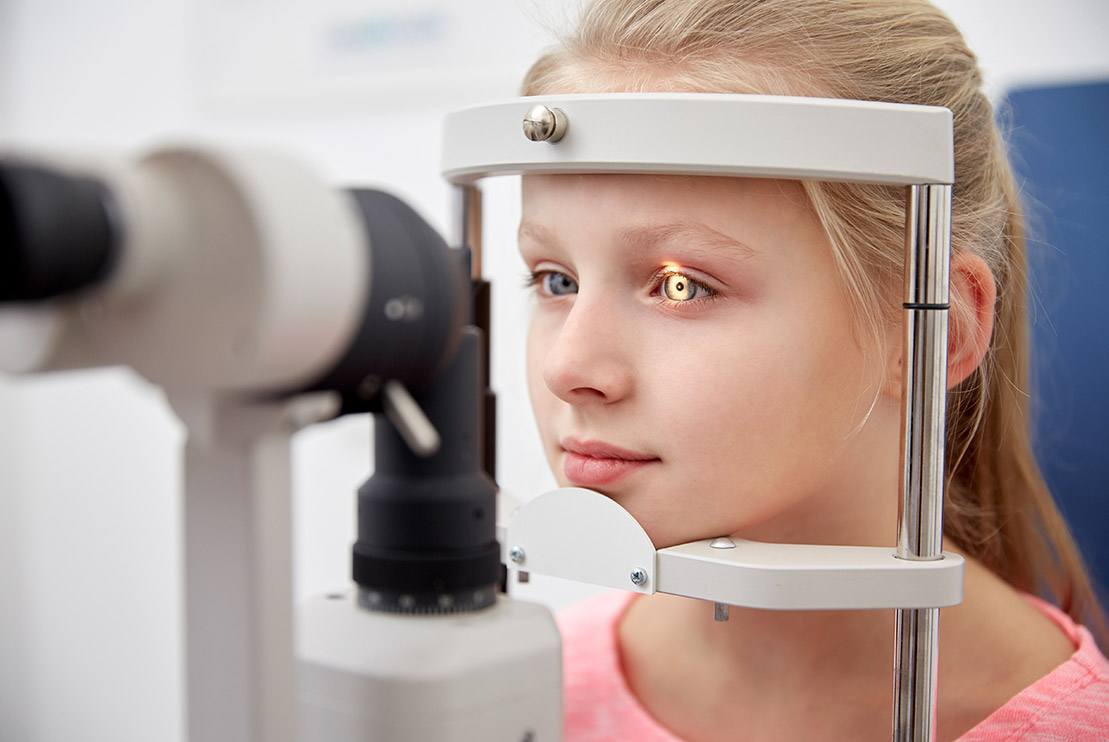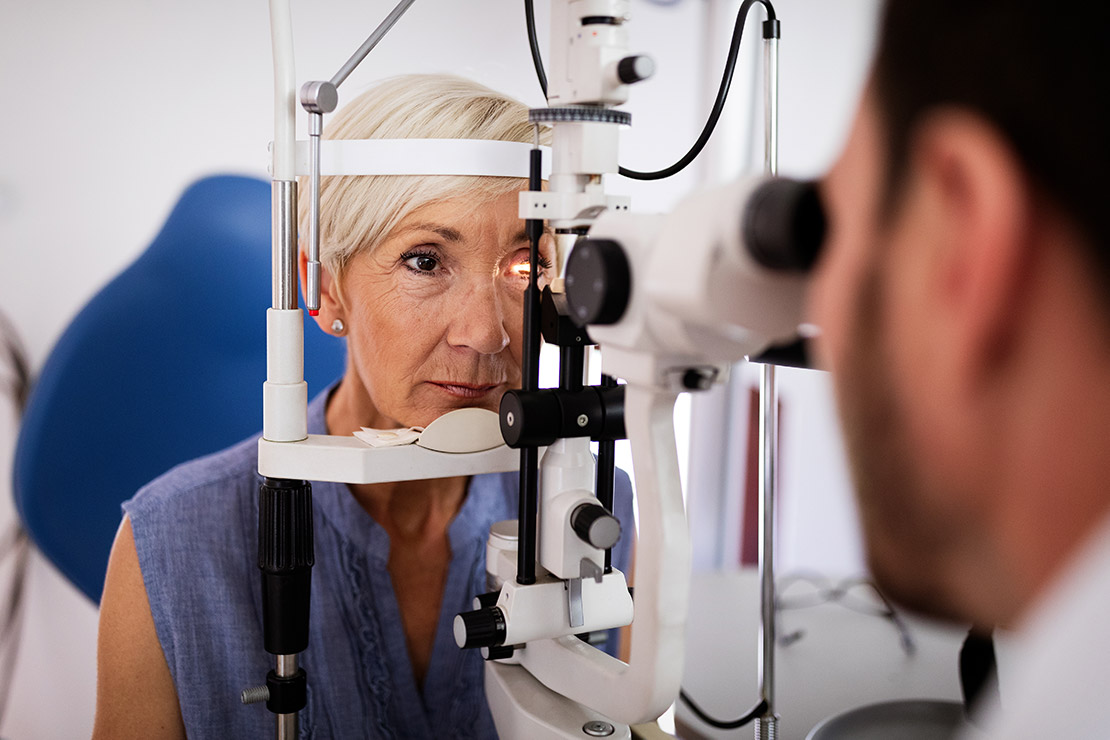The Importance of Regular Eye Exams
Regular comprehensive eye exams are a way of ensuring optimal vision as well as monitoring the health of your eyes. Signs of many systemic diseases can be detected during routine eye examinations. It is prudent to have your eyes examined once every 12 to 24 months depending on your age and medical history.
Our office features fully up-to-date equipment for providing comprehensive analysis, and vision correction. Testing procedures can detect many ailments such as glaucoma, cataract, retinal disease, diabetes, hypertension, allergies, and dry eyes.
Dr. Richardson is licensed to use therapeutic drugs to treat many ocular diseases including dry eyes, allergies, infection and glaucoma.


Regular Eye Exams for Children
It is a good idea for children to start receiving regular eye exams at the age of three. This can be instrumental in detecting hidden problems that can lead to conditions such as amblyopia (lazy eye).
Vision problems that go undetected and untreated in children is a major cause for reading difficulty and poor performance in school. Our comprehensive exam detects many focusing and coordination problems that brief school screenings fail to detect.
Our frame boutique also offers a wide selection of frames especially for children and teens. We offer comprehensive eye examinations for children three years of age and up.

Senior Eyecare

Participating Medicare Provider
We are a participating Medicare provider for senior vision care. We take the time to understand your vision and eye health concerns and are always available to answer any questions you may have.
Many seniors have special vision care needs and concerns, including dry eyes and cataracts. We take the time to provide a comprehensive exam and evaluation, and then formulate and implement the best treatment plan. We are your local resource for all your vision concerns.
Shrinking Arm Syndrome
The long and short of it
As most of us age, our eyes slowly lose their ability to focus on near objects as well as they did when we were in our younger years. If you are farsighted, this problem can become even worse. This starts for most people around age 40. The technical name for this condition is presbyopia. You may start to have trouble with close-up work like reading a newspaper, menu, or computer. As presbyopia progresses you become more dependent on stronger glasses for reading.
Presbyopia is a normal part of aging that affects all people. Besides a decreased ability to focus on near objects, symptoms can also include eyestrain and headaches.
Glasses or contact lenses usually can improve this condition. As the ability to focus up close gets worse, the prescription needs to be changed.

